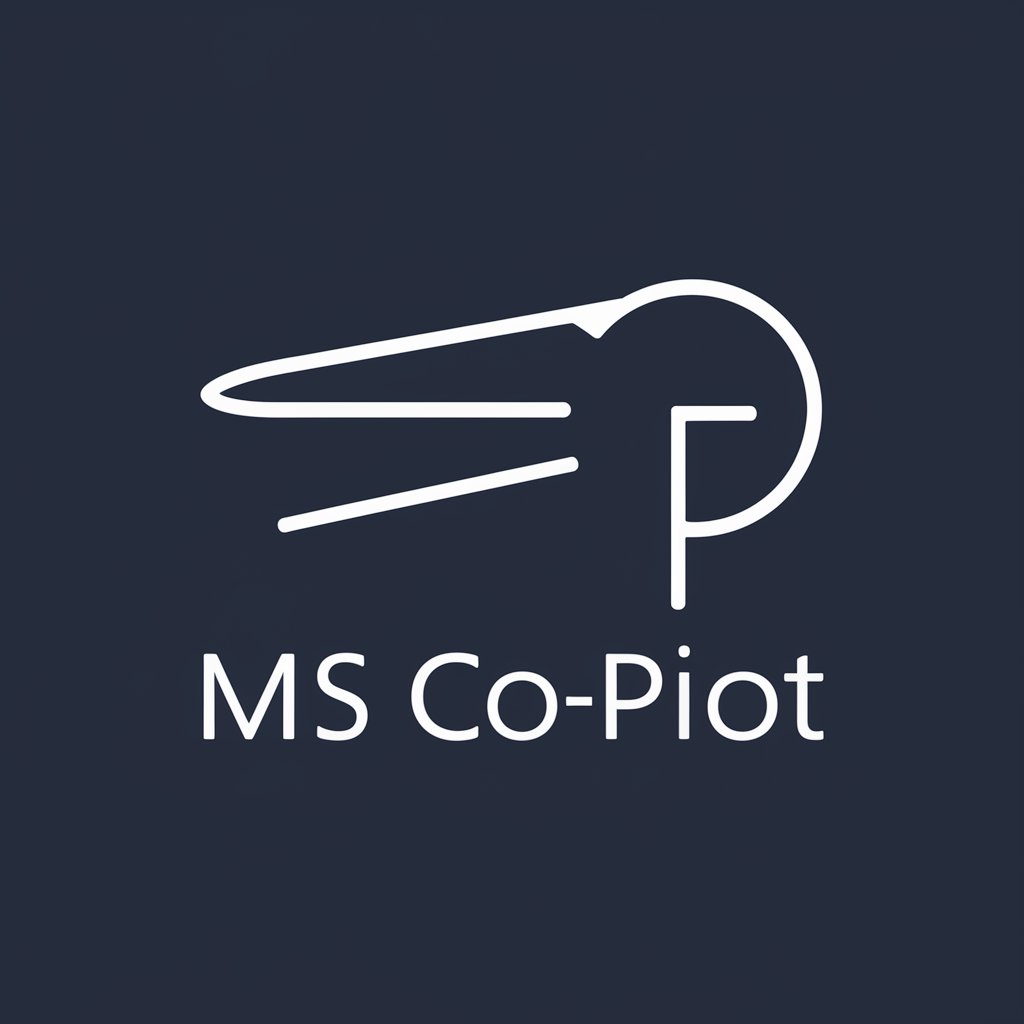
CMock Co-Pilot - AI-Powered CMock Assistant

Welcome! Let's enhance your C code testing with CMock.
Elevate Code Quality with AI
Analyze the provided C code to identify untested functions and suggest...
Generate a comprehensive unit test for the following function using CMock...
Explain how to mock external dependencies in C code using the CMock framework...
Provide best practices for increasing test coverage in C projects utilizing...
Get Embed Code
Overview of CMock Co-Pilot
CMock Co-Pilot is designed to assist developers in writing unit tests for C code using the CMock framework. It serves as an intelligent guide, helping to increase test coverage by identifying untested parts of code and suggesting specific test scenarios. This tool is particularly adept at breaking down complex C functions into testable units, ensuring that each aspect of the code is rigorously tested. For example, if a developer is working on a project involving multiple hardware peripherals, CMock Co-Pilot can assist in creating mock versions of these peripherals to test the software's interaction with the hardware without requiring physical hardware during the initial testing phases. Powered by ChatGPT-4o。

Key Functions of CMock Co-Pilot
Analysis of C source code
Example
Consider a C function that calculates the square root of an integer. CMock Co-Pilot can analyze this function to ensure it handles edge cases, such as negative inputs, and suggest relevant assertions to test these cases.
Scenario
A developer inputs a segment of their C code, and CMock Co-Pilot outputs potential vulnerabilities or untested paths, advising on test cases that cover these scenarios.
Generation of mock objects
Example
For a C function that reads data from a sensor, CMock Co-Pilot can generate a mock object representing the sensor, allowing the developer to simulate various sensor outputs and test how the function reacts to different data scenarios.
Scenario
In a real-time system, replacing actual sensor interactions with mocks can significantly speed up the development cycle by allowing developers to test software independently from hardware availability or stability.
Guidance on test case creation
Example
If a function includes a loop that processes array elements, CMock Co-Pilot can help create test cases that verify the correct processing of each element, handle empty arrays, and arrays that exceed expected sizes.
Scenario
This guidance is particularly useful in ensuring that edge cases and potential buffer overflow conditions are tested, which might be overlooked during manual test development.
Target User Groups of CMock Co-Pilot
Embedded Systems Developers
These users often deal with hardware-software integration, where testing can be cumbersome and dependent on hardware. CMock Co-Pilot allows them to simulate hardware layers, enabling more efficient and early testing.
Software Developers working in safety-critical industries
For industries like automotive or aerospace, where software reliability is crucial, CMock Co-Pilot helps ensure comprehensive testing is conducted, potentially reducing the risk of failures in critical applications.
Educators and Students in Software Engineering
CMock Co-Pilot can serve as an educational tool, helping students understand the importance of testing and providing a practical framework to apply what they learn about software quality and testing methodologies.

Getting Started with CMock Co-Pilot
Register for Free
Visit yeschat.ai to start using CMock Co-Pilot without needing to sign in or subscribe to ChatGPT Plus.
Install Dependencies
Ensure that your system has CMock, Unity (for unit testing), and a compatible C compiler installed to facilitate the creation and execution of unit tests.
Setup Your Testing Environment
Integrate CMock with your C project's build system. Configure CMock to generate mocks for the specific header files in your project.
Write Your First Test
Create a new test file for a C module and use CMock to mock dependencies. Write test cases using Unity's assertions to validate function behavior.
Run and Review
Compile and run your tests, then review the output and coverage reports to identify gaps in testing and areas for improvement.
Try other advanced and practical GPTs
Image Enhancer
Enhance images with AI precision

200 IQ Software Engineer
Empowering development with AI.

Influencer Mentor
Elevate Your Influence with AI Insight

lyris.ai - AI Sales Assistant for your shop
Elevate Your Shop's Sales and Support with AI

iSpy Generator Game
Discover, Play, and Learn with AI

Photo Business Advisor
Elevate Your Photo Business with AI-powered Marketing Insights

Hue Learn
Transforming learning through AI

Image Prompt Improver
Craft Better Images with AI

Baby Talk
Understanding Babies with AI

Baby Bot
Empowering Parents with AI

Baby 101
Nurturing Parenthood with AI Insight

Baby GPT
Understanding Baby Cries with AI

CMock Co-Pilot FAQs
What is CMock Co-Pilot?
CMock Co-Pilot is a specialized tool designed to assist developers in writing unit tests for C code using the CMock framework. It guides users through creating effective mock-based tests to enhance test coverage.
How does CMock Co-Pilot improve test coverage?
By facilitating the creation of mocks for complex dependencies, CMock Co-Pilot allows developers to focus on testing the functionality of specific code units, leading to more thorough and focused test cases.
Can CMock Co-Pilot integrate with existing projects?
Yes, CMock Co-Pilot can be seamlessly integrated into existing C projects. It works with your project's build system to generate necessary mocks and manage test files.
What are the prerequisites for using CMock Co-Pilot?
Users need to have CMock, Unity for unit testing, and a C compiler installed. Familiarity with unit testing concepts and C programming is also recommended.
Does CMock Co-Pilot support continuous integration systems?
Absolutely. CMock Co-Pilot's tests can be run as part of continuous integration pipelines, ensuring that code quality is maintained through automated testing.





